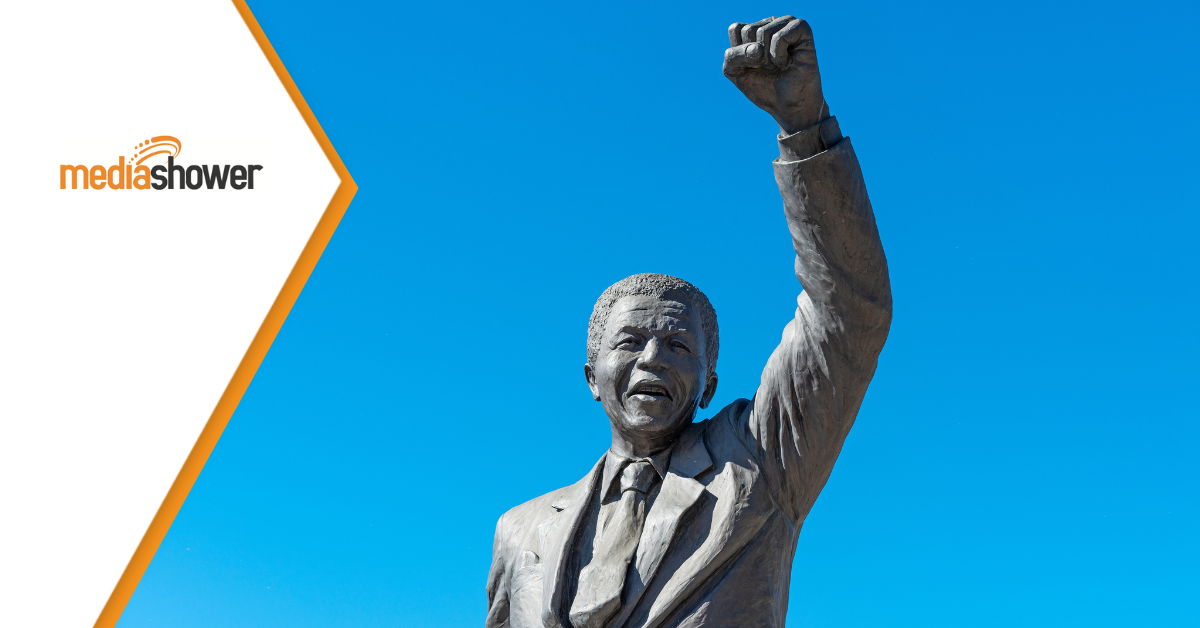
TLDR: Nelson Mandela was a powerful communicator who helped change a nation and bring about racial equality because of his genuine commitment and willingness to sacrifice his life.
So What? A deep knowledge and understanding of the ideas you want to express, and an ultimate commitment to those ideas, will bring power to your message.
The speech Nelson Mandela gave while standing at the dock of the defendant during the Rivonia Trial in 1963 took three hours to deliver, but it was the last line of the speech that captivated his hearers:
During my lifetime, I have dedicated my life to this struggle of the African people. I have fought against white domination, and I have fought against black domination. I have cherished the ideal of a democratic and free society in which all persons will live together in harmony and with equal opportunities. It is an ideal for which I hope to live for and to see realized, but, my Lord, if it needs be, it is an ideal for which I am prepared to die.
An equal and peaceful society is worth more than your life. This idea still resonates with people, almost 60 years later. Long after people forgot the three hours of painstaking defense against the charges brought against him, which resulted in his legal conviction, people remember this moral conviction.
Mandela’s words galvanized his people to continue the fight against the government’s system of apartheid — racial segregation and treatment of blacks as second-class citizens in South Africa — even without his presence.
And it worked.
The Great Human Themes
Over 30 years, Mandela had watched South African protesters attacked, crushed, and slaughtered in the midst of their non-violent protests. Worse, more restrictive laws were passed during that period, leading Mandela and his followers to despair they would ever see change through purely non-violent means.
They formed a group called Umkhhonto in 1961 to engage in acts of sabotage against the government. In the speech, Mandela carefully laid out his opposition group’s viewpoint: to engage in acts of sabotage against the government, with as little violence as possible. They would also provide basic military training, so they wouldn’t be at a disadvantage against their white, military-trained counterparts.
“The time comes in the life of any nation when there remain only two choices: submit or fight. That time has now come to South Africa. We shall not submit and we have no choice but to hit back by all means in our power in defense of our people, our future, and our freedom,” Mandela said during the speech.
Mandela was able to refute some of the accusations against him and other group members by saying some of the activities they were charged with were carried out by another group of protesters.
For the others, his defense was that they needed to bring about change by any means necessary, though they still avoided violence whenever possible. The court rejected this defense at the conclusion of the trial and found the members guilty, but the nation would later come to embrace Mandela’s words and ideas.
One of Mandela’s strengths as a speaker was the way he stayed strongly tied to ideas bigger than himself. Democracy, free society, and equal opportunity are great human themes that can be used to great advantage by great communicators.

Mandela’s Ultimate Commitment
The other strength of Mandela’s speech is evoked in the final line: his ultimate commitment to seeing change happen.
In his mind, the horrors of apartheid that had impacted his fellow citizens needed to end, no matter the personal cost to himself. He had grown up and lived in a society that put a minority of white European immigrants in power over a larger number of black African people.
The indigenous people of South Africa could not work alongside the whites. They could not live in white communities, and they could not socialize together. They also could not vote to make changes.
Mandela felt to the core of his being that his government was set up incorrectly. He knew it was the work of his life to strive for a better way. His ultimate commitment led to him spending years in jail, but it also put him in a leadership position in which he could bring a great deal of healing to his people.
The ultimate commitment of Mandela to his mission and message helped contribute to the power of his leadership. Having a deep conviction or passion for your message — and sharing it freely — will help that power come naturally to you as well.
At Media Shower, we help brands make their communication clear, purposeful, and passionate. Click here to try our award-winning content platform for free.
